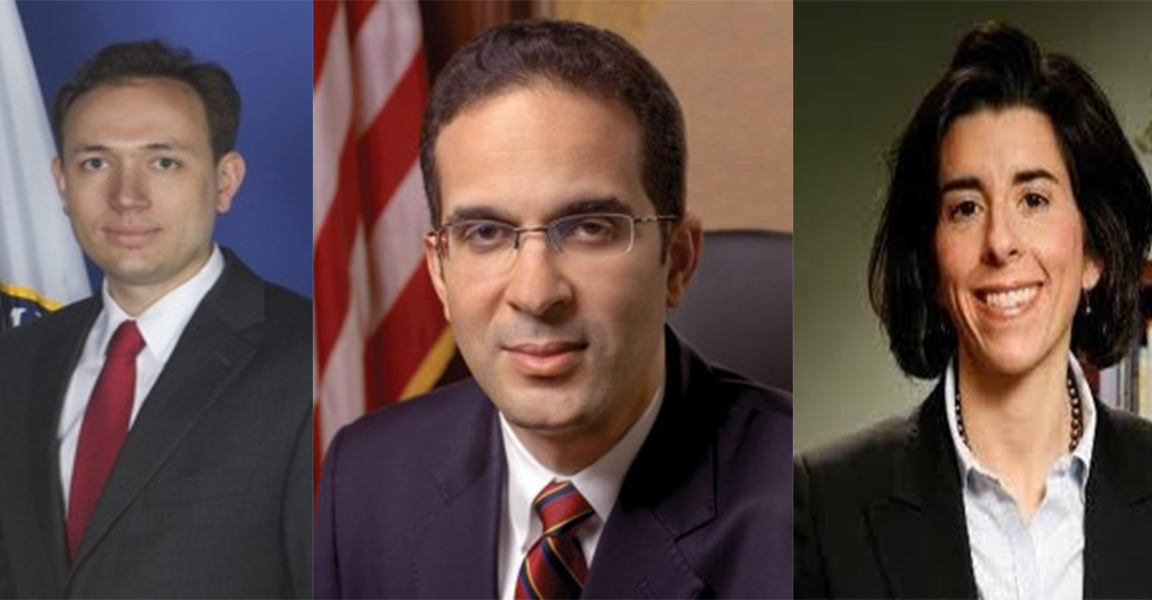
In the last few years the General Assembly has passed legislation that slashed pensions, cut taxes on the wealthiest Rhode Islanders, recklessly combined the State’s boards of education, and instituted a discriminatory and unnecessary Voter ID law. And, of course, all while under the auspices of the Democratic Party.
It’s no secret then, that progressives are dissatisfied with the status quo of Rhode Island. There have been victories; notably marriage equality. But marriage equality only arrived after a compromise of civil unions riled up enough people that there was a large-scale campaign to gain true equality before the law. Full progressive change in Rhode Island happens when there is a confluence of outrage and money.
What has tided progressives over is a series of compromise: the most progressive change possible, the most progressive candidate possible. U.S. Sen. Sheldon Whitehouse, U.S. Rep. David Cicilline, and Gov. Lincoln Chafee are all beneficiaries of this. While some of them have not been the most progressive candidate in their races, they have been the most progressive candidate possible.
But recent events in New York City and Boston have empowered progressives across the country, and Rhode Island progressives especially have taken note (sandwiched, as they are, between those two regional poles). Candidates with explicitly progressive campaigns have won mayoral races in those cities in off-election years. The New York City example of Bill de Blasio is especially hopeful. NYC has a population of somewhere around 7 times larger than the entirety of Rhode Island, which despite a Democratic majority has been ruled by non-Democrats since 1994, the last full year in which there was a Democratic governor in Rhode Island.
If it can happen in New York and Boston, then it can happen here, the reasoning goes. As Rhode Island progressives eye the governor’s race, they may start drawing parallels with New York City. This may explain the hoopla over Clay Pell, the untested scion of Rhode Island’s greatest political legacy.
There are a few factors to consider. First, progressives may believe they are the Democratic Party, but that’s ultimately false. Many of Rhode Island’s Democrats are more accurately described as “Christian democrats” generally socially conservative but supportive of social justice and welfare. These are the elder type of Democrats, part of the party before the progressives split from the Republicans. The reality is that Rhode Island’s Democratic Party incorporates three general sections; the progressives, the Christian democrats, and the neoliberals. There are also some genuine conservatives.
However, of these three wings, the progressives are by far the most politically dangerous and important. Time and time again they’ve proven they can break or make Democratic candidates. Therefore, it’s not surprising to see all Democratic candidates in the gubernatorial primary proclaim themselves progressives.
Progressives have a pastime of DINO-hunting, which generally means weeding out the Christian democrats or neoliberals. But as the gubernatorial race approaches, they may find themselves hunting progressives-in-name-only instead. I doubt I’m wrong in thinking that progressives believe that if the first elected Democratic governor is coming in 2014 they’ll allow that governor to be anything short of a true-blue progressive.
Providence Mayor Angel Taveras is especially vulnerable to the whims of progressive fervor. He’s managed to position himself somewhere between the neoliberal position and the progressive position. Meanwhile, General Treasurer Gina Raimondo has been firmly defined as part of the neoliberals; the “Wall St. Democrats.” But that line-walking is not playing as well as it should. On a recent appearance on WPRI’s Newsmakers, when pressed by Ted Nesi, Taveras was unable to draw a distinction between himself and Raimondo in terms of actual policy, suggesting that it’ll come out in the campaign.
On one hand, that’s correct; and politically it’s unnecessary to draw a distinction this early when Rhode Islanders won’t be paying attention for another year or so. But on the other, those contrasts should be clear already, especially as activists begin examining the candidates closely and building enthusiasm for campaign season.
Taveras’ vulnerability is clear in Clay Pell, as ill-defined a candidate as ever there was. We know virtually nothing about him beyond the name, a brief biographical sketch, and that his wife is Olympian Michelle Kwan. Yet Pell is bending progressives towards his center of gravity, and that should be worrying this early. His grandfather was also a relative unknown who defeated two former Governors for his U.S. Senate seat.
Despite their strengths, one shouldn’t think of the progressives as a wholly deciding factor though. For one thing, the movement is, like most things in Rhode Island, fractious and full of personalities. With the disbanding of Ocean State Action, the main meeting table and organizing presence for progressive groups has been removed. For another, what gets defined as truly “progressive” is open to debate. And finally, while the gubernatorial race will gain the most attention, the real power lies in the General Assembly, where progressives will have to focus on electing more friendly candidates as well as protecting those they already have.
2014 will be a serious test for progressives in Rhode Island. Can they elect a governor who represents their values? Can they take a controlling majority in the Assembly? And should they manage that, will they be able to produce results and right Rhode Island after years of neoliberal failure?

